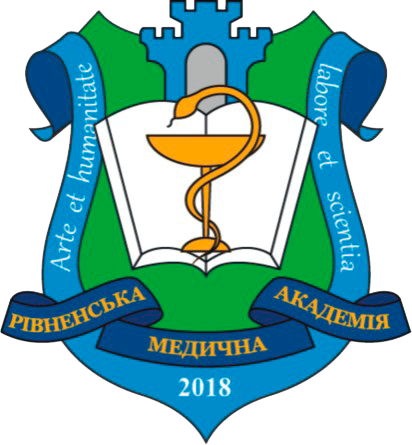SCIENTIFIC PRINCIPLES OF PROVIDING PEDAGOGICAL CONDITIONS FOR THE TRAINING OF PHYSICAL THERAPIST STUDENTS TO USE CLINICAL ASSESSMENT TOOLS
DOI:
https://doi.org/10.32782/health-2024.2.28Keywords:
physical therapy, physical therapist, professional training, pedagogical conditions, clinical assessment tools.Abstract
The article describes and gives a basis for scientific principles of providing pedagogical conditions for the use of clinical assessment tools by physical therapist students. It has been established that the educational process of students majoring in 227.1 (Physical Therapy) should be based on five components: motivation; formation of knowledge, skills, and abilities; quasi-professional methods; practice; evaluation criteria. The author proposes to introduce the following pedagogical conditions into the educational process to ensure the presence of these components of improving the quality of physical therapists’ education: formation of theoretical knowledge and practical skills while using clinical assessment tools; supplementing the content of special disciplines with interaction in quasi-professional settings; introduction of tutoring support in the educational process of physical therapists. The implementation of pedagogical conditions, according to the author's idea, is based on the activity-based (organization of the educational process, in which the main attention is paid to the active, versatile, productive, maximally independent educational and cognitive activity of students) and competence-based (formation of competencies, training results are considered significant outside the education system) approaches, explanatory and illustrative (to ensure that students understand the content of the educational material) and reproductive (aimed at reproducing the ways of doing things according to the algorithm defined by the teacher) methods, concepts of problem-based learning (a form of organizing the interaction between teachers and students, which aims to create problem situations in the educational process and facilitate their solution by students) and collective (creating specific conditions for the exchange of knowledge, skills and experience between students) learning.
References
Бурка О. М. Підготовка майбутніх фізичних терапевтів до використання фізкультурно-оздоровчих технологій. Запоріжжя : НУ «Запорізька політехніка», 2022. 185 с.
Карплюк С. Становлення та розвиток взаємонавчання в історії педагогічної думки // Проблеми освіти у Польщі та в Україні в контексті процесів глобалізації та євроінтеграції: Збірник матеріалів Міжнародної науково-практичної конференції. (м. Київ – Житомир, 22–24 квітня 2009 р.). Київ : КІМ, 2009. С. 399–407.
Карплюк С. О. Досвід Ривіна-Дьяченка у проектуванні методики взаємонавчання. Вісник Житомирського державного університету імені Івана Франка. Педагогічні науки. Житомир : ЖДУ ім. І. Франка, 2009. Вип. 43. С. 121–125.
Клокар Н. І. Проектування дистанційного навчання педагогічних працівників у системі післядипломної освіти регіону. Народна освіта : електронне наукове фахове видання. 2009. № 2 (8). URL: https://www.narodnaosvita.kiev.ua/Narodna_osvita/vupysku/8/statti/2klokar.htm (дата звернення: 15.05.2024).
Ковальчук Л. О. Розвиток педагогічної техніки майбутнього вчителя у процесі вивчення педагогічних дисциплін у класичному університеті. Вісник Житомирського державного університету імені Івана Франка. Педагогічні науки. Житомир : ЖДУ ім. І. Франка, 2009. Вип. 43. С. 69–73.
Козинець І. І., Трофимова О. П. Ефективність пояснювально-ілюстративного методу під час викладання дисципліни «термодинаміка» навчального плану підготовки бакалаврів спеціальності 184 Гірництво. Вісник Дніпропетровського університету імені Альфреда Нобеля. Серія «Педагогіка і психологія». Педагогічні науки. 2023. № 1 (25). С. 34–42.
Левочко М. Т., Гресь Н. Л. Теоретично-практична підготовка студентів до виробничої практики. Вісник Житомирського державного університету імені Івана Франка. Педагогічні науки. Житомир : ЖДУ ім. І. Франка, 2009. № 3. С. 3–9.
Тверезовська Н. Т. Філіппова Л. М. Сутність та зміст поняття «педагогічні умови». Нова педагогічна думка. Рівне, 2009. № 3. С. 90–92.
Царенко К. В. Розвиток професійно-педагогічної компетентності тренерів викладачів дитячо-юнацьких спортивних шкіл у процесі підвищення кваліфікації : дис. ... канд. пед. наук: 13.00.04. Запоріжжя, 2017. 284 с.
Чайка В. М. Основи дидактики : навчальний посібник. Київ : Академвидав, 2011. 240 с.





